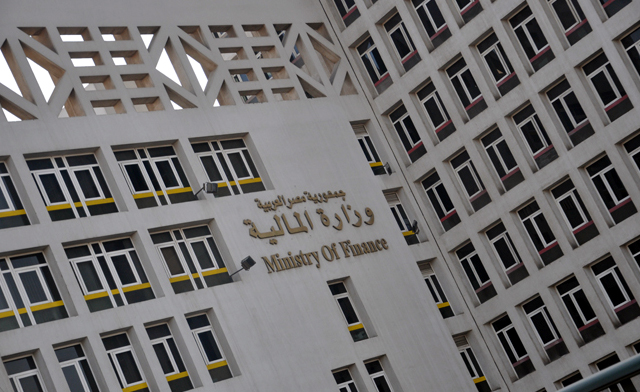
Fitch Ratings has upgraded Egypt's Long-term foreign and local currency Issuer Default Ratings (IDR) to 'B' from 'B-'.
The Outlooks are Stable. Fitch has also upgraded the issue ratings on Egypt's senior unsecured foreign and local currency bonds to 'B' from 'B-'.
The Country Ceiling has been upgraded to 'B' from 'B-' and the Short-term foreign currency IDR affirmed at 'B'.
Key rating drivers
The upgrade of Egypt's IDRs reflects the following key rating drivers and their relative weights: High. The government has embarked on a policy course designed to tackle some of the serious structural weaknesses that have emerged or intensified in recent years.
Fuel subsidy cuts and tax hikes have been implemented as part of a clear five-year fiscal consolidation strategy.
Power shortages are being tackled, overdue payments to oil companies reduced, investment laws revised and disputes with foreign investors settled.
The measures appear to have strong political backing. Medium Consolidation, stronger growth and lower commodity prices will pull down the fiscal deficit, although it will remain large compared with peers, at a forecast 10.2% of GDP in FY15 (to end June).
Excluding grants, the deficit is forecast to narrow by 6.3% of GDP in FY15.
Fuel subsidies have been cut, new taxes introduced and existing taxes reformed in a largely front-loaded reform programme. Introduction of VAT, which will broaden the tax base, is expected later in FY15.
The fiscal position will benefit clearly from lower oil prices, and with wheat prices also well below the budgeted level, will add to the savings on the subsidy bill in FY15.
Savings will be partially offset by higher social spending and spending commitments in the new constitution.
Fiscal consolidation and stronger nominal GDP growth are forecast to put the debt/GDP ratio on a downward trend, ending a multi-year deterioration.
Nonetheless, debt/GDP is around double the peer median, at 90.5% at end FY14 and is only expected to fall to 85.8% of GDP by end-FY16. Domestic banks remain ready buyers of government debt and pension funds and insurance companies are becoming more active. Economic growth is picking up and is expected to strengthen.
Year-on-year growth rose to a provisional 6.8% in 3Q14, the highest since 2008, from 3.7% in 2Q14.
Consumption and investment have led growth, driven by greater political stability, increased confidence in economic policy and government-led investment projects.
Major infrastructure projects are underway and further commitments are anticipated at a high-level conference scheduled for March.
Fitch forecasts that real GDP growth will rise from 2.1% in 2013 to 4.7% in 2016.
Growth is vulnerable to setbacks if reform stalls. Political stability has improved under President Sisi.
In Fitch's opinion, this reflects a desire for stability, a clampdown on political opposition and an improving economy.
Parliamentary elections are likely to be held in March 2015, with individuals favouring the president expected to win a majority.
Nonetheless, significant sections of the population are disaffected and there is serious sporadic violence in North Sinai.
World Bank governance indicators have deteriorated in recent years and are below peers.
Egypt's IDRs also reflect the following key rating drivers: Reserves have stabilised at below three months of current external payments, although foreign exchange rationing and GCC inflows have kept the current account deficit low.
Prospects for the balance of payments look brighter over the next couple of years, but Fitch expects only a marginal improvement in reserve coverage, as stronger inflows of foreign exchange will be used to satisfy unmet demand and pay down profit arrears to oil companies.
GCC inflows have pushed up gross external debt, but it remains below peers at an estimated 17% of GDP at end-2014.
The new funds are on a concessional basis, so external debt stock and service indicators are still stronger than peers.
Net external debt is well below peers at just 1.9% of GDP. GCC support is increasingly expected to take the form of FDI.
The rating is supported by the absence of a recent history of debt restructuring.
